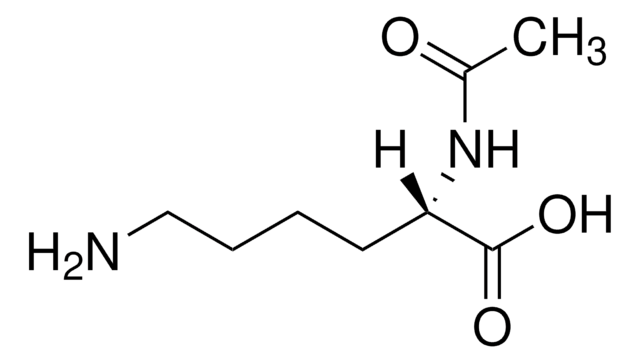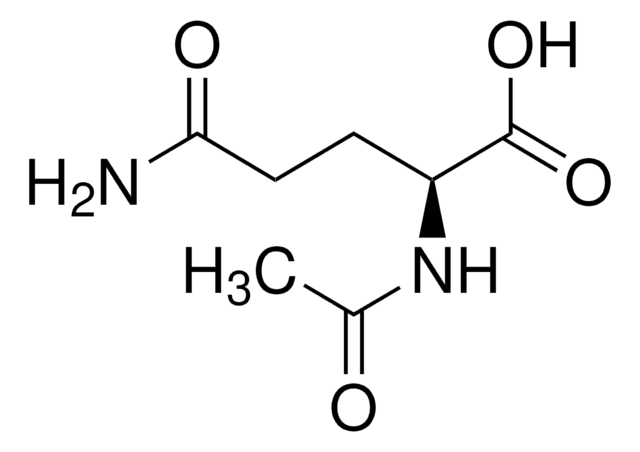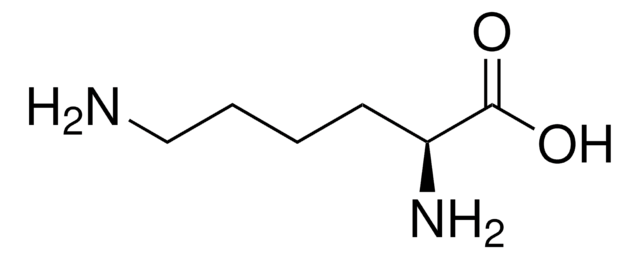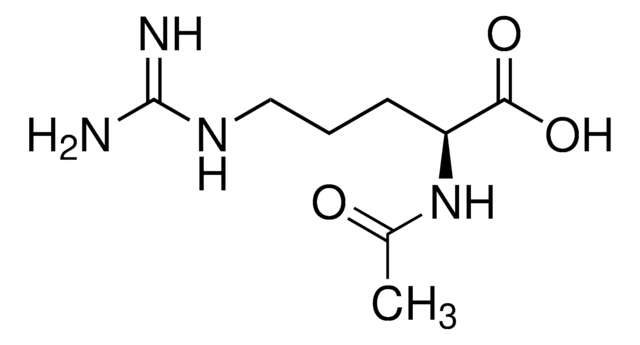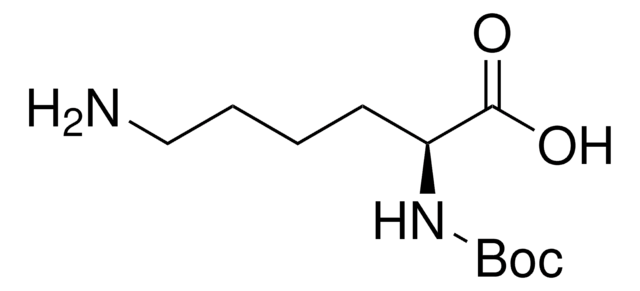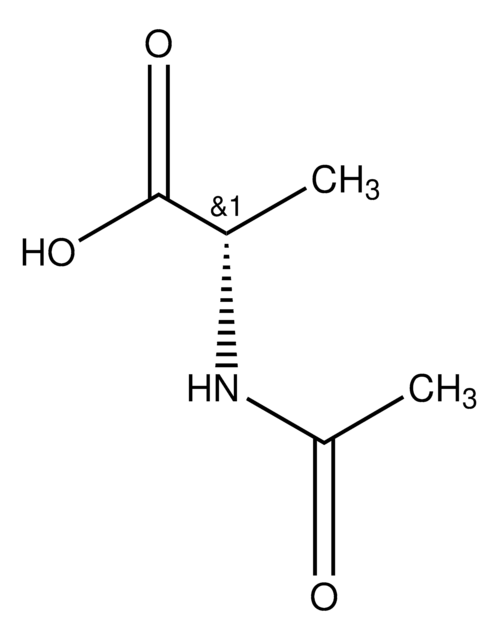A4021
Nε-Acetyl-L-lysine
≥98% (TLC)
Synonim(y):
N6-acetyl-L-lysine
About This Item
Polecane produkty
product name
Nε-Acetyl-L-lysine,
Próba
≥98% (TLC)
Postać
powder
stężenie
50 mg/mL in 80% acetic acid
kolor
colorless to white
mp
250 °C (dec.) (lit.)
temp. przechowywania
−20°C
ciąg SMILES
CC(=O)NCCCC[C@H](N)C(O)=O
InChI
1S/C8H16N2O3/c1-6(11)10-5-3-2-4-7(9)8(12)13/h7H,2-5,9H2,1H3,(H,10,11)(H,12,13)/t7-/m0/s1
Klucz InChI
DTERQYGMUDWYAZ-ZETCQYMHSA-N
Szukasz podobnych produktów? Odwiedź Przewodnik dotyczący porównywania produktów
Zastosowanie
- Nε-Acetyl L-α Lysine Improves Activity and Stability of α-Amylase at Acidic Conditions: A Comparative Study with other Osmolytes. This study highlights the use of Nε-Acetyl-ʟ-lysine in enhancing the functional stability and activity of α-amylase under acidic conditions, demonstrating its potential as a valuable additive in industrial enzyme applications (Joghee et al., 2020).
Działania biochem./fizjol.
Kod klasy składowania
11 - Combustible Solids
Klasa zagrożenia wodnego (WGK)
WGK 3
Temperatura zapłonu (°F)
Not applicable
Temperatura zapłonu (°C)
Not applicable
Certyfikaty analizy (CoA)
Poszukaj Certyfikaty analizy (CoA), wpisując numer partii/serii produktów. Numery serii i partii można znaleźć na etykiecie produktu po słowach „seria” lub „partia”.
Masz już ten produkt?
Dokumenty związane z niedawno zakupionymi produktami zostały zamieszczone w Bibliotece dokumentów.
Klienci oglądali również te produkty
Nasz zespół naukowców ma doświadczenie we wszystkich obszarach badań, w tym w naukach przyrodniczych, materiałoznawstwie, syntezie chemicznej, chromatografii, analityce i wielu innych dziedzinach.
Skontaktuj się z zespołem ds. pomocy technicznej